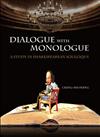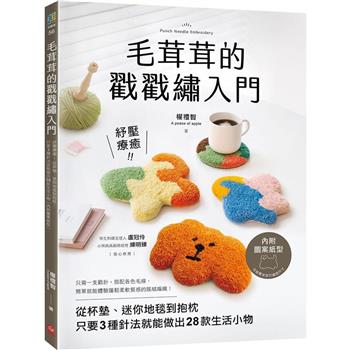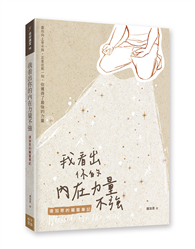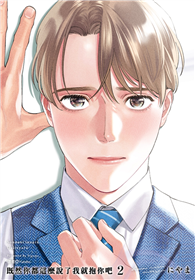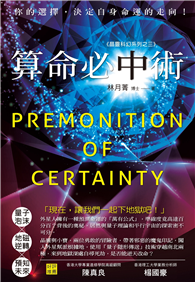Unique features—
☆ selected Shakespearean soliloquies with commentary
☆ the prosody of Shakespeare's verse and how to recite it
☆ the function of Juliet's soliloquies in Romeo and Juliet
☆ four types of soliloquy in Shakespeare's plays
☆ samples from the long speeches of Portia, Lear, and Prospero with commentary
☆ readings by Mr. Joseph Graves, Ms. Robin Nordli, and other well-known Shakespearean actors
彭鏡禧教授研究莎士比亞戲劇多年,發現劇團甄選演員常要求演員演出莎劇獨白片段,是以開始整理莎士比亞獨白的戲劇語言與誦讀方式。書中選譯四十則獨白,以英漢對照形式呈現,分辨其類別,加上背景提示,並邀請優秀的莎劇演員配音,示範如何以聲音演出。本書帶讀者從不同的途徑進入莎士比亞戲劇的世界,同時滿足戲劇愛好者興趣、實務及研究上的需求。
作者簡介:
作者/譯者簡介
A visiting professor at Fu Jen Catholic University, Ching-Hsi PERNG is Professor Emeritus, National Taiwan University, where he retired as Distinguished Professor of English and Drama. Among some thirty books to his credit are three studies on Shakespeare and Chinese translations of Hamlet and The Merchant of Venice. He is also co-playwright (with Fang Chen) of Bond, a bangzi adaptation of The Merchant of Venice, and co-editor (with Beatrice Biqi Lei) of Shakespeare in Culture. His current project is a new annotated Chinese version of Measure for Measure.
彭鏡禧,臺灣新竹縣人。臺灣大學外文系學士及碩士、美國密西根大學比較文學博士。曾於耶魯大學、牛津大學、芝加哥大學研修,曾任維吉尼亞大學客座教授、中華民國比較文學學會理事長、中華戲劇學會理事長、臺大外文系主任、戲劇系主任、文學院院長等職。現任臺大特聘教授,擔任莎士比亞、英詩、翻譯等課程,並兼中華民國筆會會長。曾獲七十七年梁實秋文學獎詩翻譯及散文翻譯第一名、中國文藝協會翻譯獎、香港翻譯學會榮譽會士榮銜。
目錄
Table of Contents
Acknowlegments 009
Part I Introduction
I. An Overview of Shakespeare’s Dramatic Soliloquy 013
II. Reciting Shakespeare’s Dramatic Language 020
Part II Dialogue with Monologue
I. Language as Hormone: Juliet’s Shortened Girlhood 033
II. Who’s the Addressee?—Four Types of Shakespearean Soliloquies 051
Part III Selected Soliloquies from Shakespeare with Brief Commentary
I. from Romeo and Juliet 079
1 “O Romeo, Romeo, wherefore art thou Romeo?”—Read by R. Nordli 080
2 “The clock struck nine when I did send the nurse.”— Read by R. Nordli 082
3 “Gallop apace, you fiery-footed steeds” —Read by R. Nordli 084
4 “Ancient damnation! O most wicked fiend” —Read by R. Nordli 086
5 “Farewell! God knows when we shall meet again.” —Read by R. Nordli 087
II. from Twelfth Night 090
1 “I do I know not what, and fear to find” —Read by R. Nordli 090
2 “I left no ring with her: what means this lady?” —Read by R. Nordli 091
3 “’Tis but fortune, all is fortune.” —Read by W. Diggle 093
III. from 1 Henry IV103
1 “I know you all, and will awhile uphold” —Read by P. E. Johnson 104
2 “ ‘But for mine own part, my lord’ ” —Read by L. Banovez 105
3 “’Tis not due yet, I would be loath to pay him”— Read by A. Hutchinson 107
4 “Well, if Percy be alive, I’ll pierce him.” —Read by A. Hutchinson 109
5 “O Harry, thou hast robb’d me of my youth!” —Read by L. Banovez 110
6 “For worms, brave Percy. Fare thee well, great heart!” —Read by C. H. Perng 111
7 “Emboweled? If thou embowel me today” —Read by C. H. Perng 112
IV. from 2 Henry IV 114
1 “How many thousand of my poorest subjects” —Read by P. E. Johnson 114
2 “Why doth the crown lie there upon his pillow” —Read by P. E. Johnson 116
V. from Macbeth 118
1 “Two truths are told” —by C. Ware 119
2 “Glamis thou art, and Cawdor; and shall be” —Read by R. Nordli 121
3 “The raven himself is hoarse” —Read by R. Nordli 123
4 “If it were done, when ’tis done, then ’twere well” —Read by W. Diggle 124
5 “Is this a dagger which I see before me” —Read by E. Schoen 127
6 “Out, damned spot! Out, I say” —Read by R. Nordli 129
7 “Seyton!—I am sick at heart” —Read by Patrick Siler 131
8 “I have almost forgot the taste of fears.”—Read by C. H. Perng 133
9 “She should have died hereafter.”—Read by C. H. Perng 133
VI. from Hamlet 132
1 “O, that this too too sullied flesh would melt” —Read by I. Christiansen 132
2 “To be, or not to be, that is the question” —Read by E. Schoen 135
3 “O, what a noble mind is here o'erthrown!” —Read by R. Nordli 138
4 “O, my offence is rank! It smells to heaven.” —Read by M. R. Pauley 140
5. “Now might I do it pat, now a is a-praying” —Read by N. Whitmer 142
6 “And England, if my love thou hold’st at aught” —Read by M. R. Pauley 144
7 “How all occasions do inform against me” —Read by B. Marshall-Rashid 146
VII. from The Merchant of Venice 148
1 “How like a fawning publican he looks!” —Read by G. J. Penzick 148
2 “Certainly, my conscience will serve me” —Read by L. Banovez 150
3 “So may the outward shows be least themselves.” —Read by S. Wilson 152
Part IV Some Long Speeches with Brief Commentary
I. from The Merchant of Venice 159
1 “You see me, Lord Bassanio, where I stand,” —Read by R. Nordli 159
2 “The quality of mercy is not strained.” —Read by R. Nordli 161
II. from King Lear 163
1 “Blow, winds, and crack your cheeks! Rage! blow!” —Read by J. Graves 163
III. from The Tempest 166
1 “You do look, my son, in a moved sort,” —Read by J. Graves 166
Table of Contents
Acknowlegments 009
Part I Introduction
I. An Overview of Shakespeare’s Dramatic Soliloquy 013
II. Reciting Shakespeare’s Dramatic Language 020
Part II Dialogue with Monologue
I. Language as Hormone: Juliet’s Shortened Girlhood 033
II. Who’s the Addressee?—Four Types of Shakespearean Soliloquies 051
Part III Selected Soliloquies from Shakespeare with Brief Commentary
I. from Romeo and Juliet 079
1 “O Romeo, Romeo, wherefore art thou Romeo?”—Read by R. Nordli 08...
